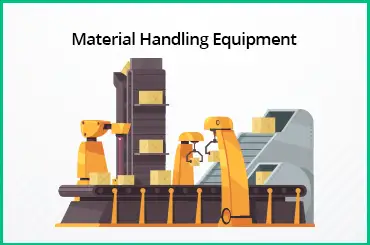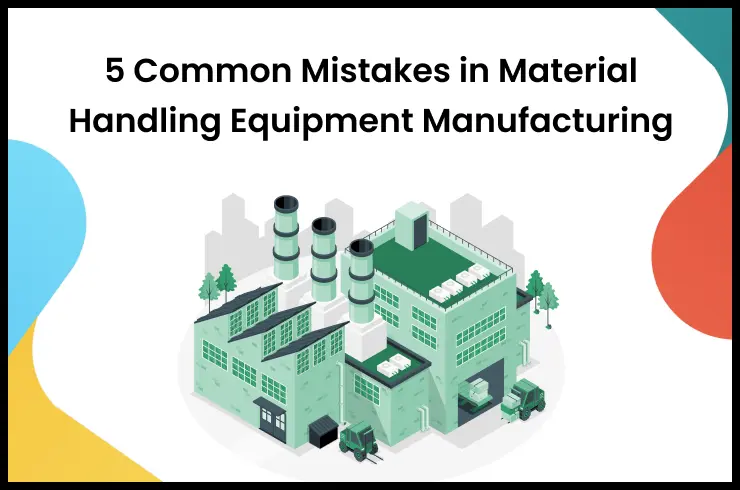Manufacturing engineering is a complex job role. Manufacturing Engineers usually work in industries or production facilities.
Manufacturing Engineers can develop systems to increase production speed and deliver high-quality products in less time. They offer the most suitable technology for your industry and help earn you more profit with time. This article will discuss what manufacturing engineers do and how they impact industrial functions.
What Do You Mean by Manufacturing Engineers?
Manufacturing engineering is an engineering branch that requires industrial and mechanical engineering skills. The main focus of a manufacturing engineer is to use raw materials to deliver high-quality products in less time. They design the tools and machines for smoother and faster production.
Manufacturing engineers must understand various stages of production to plan better. They know about product design and the tools and systems to use. These engineers also solve issues in the operating system to make production more profitable.
What Do the Manufacturing Engineers Do?
Manufacturing engineers select the best technology to manufacture products. They plan and manage the whole process, including running and maintenance. They handle quality control, inventory, and cost. They also monitor the supply chain to improve the design and reduce wastage.
Manufacturing Engineers' job responsibilities include:
- Reducing overall product cost
- Maintaining resources and tools
- Solving production line problems
- Making production faster
- Improving product quality while maintaining cost
- Reducing product wastage
- Writing reports
Manufacturing Engineer vs. Process Engineer
- Manufacturing Engineers and Process Engineers both work in manufacturing industries. Their overall job profile is different from each other. However, there are some differences.
- Manufacturing engineers work in discrete manufacturing and mostly work to assemble different parts to form products. They work with machines, robots, assembly lines, and other equipment.
- Process Engineers are chemical engineers who form the recipe of the products. They work in continuous manufacturing. The process engineer takes all the chemical engineering decisions and uses equipment like steam pipes, distillation columns, heat pumps, and tanks.
Manufacturing Engineer vs. Production Engineer vs. Industrial Engineer
All these engineers may sound similar to most people, but they are different. These job roles have various sets of responsibilities that are mentioned here.
1. Manufacturing Engineers
They are the ones to make the initial design, layout, and overall manufacturing process. The manufacturing process is under the supervision of a manufacturing engineer.
2. Production Engineers
They run the systems for better production. They are responsible for inventory, waste reduction, quality control, and other operations at the production site.
3. Industrial Engineers
These engineers are similar to production engineers. They manage the workforce or labor in the industry, and their responsibility is to make the process error-free and fast to increase production speed.
How Much Do Manufacturing Engineers Make in India?
Manufacturing Engineer's salary depends on their work experience. With 1-9 years of experience, the salary ranges from 1.8 lakhs to 9.0 lakhs per year, with an average salary of about 6 lakhs.
Differences Between Manufacturing, Industrial, Production, and Structural Engineers
The responsibilities are different for each of these roles. The main difference is in the stage of the process these engineers do their job.
1. Manufacturing Engineers
They mainly focus on the research design and system of the manufacturing process. They also design machine parts and tools for manufacturing better products.
2. Production Engineers
Production engineers manage the inventory and focus on long-term system improvements. They also work to reduce product wastage, mainly focusing on making higher-quality products.
3. Industrial Engineers
These engineers manage the man-hours and overall work with workers. Their job is similar to production engineers, but their goal is to improve work culture and reduce working hours for laborers to increase profit.
4. Structural Engineer
Structural engineers design buildings and work areas to handle the impact of natural disasters like earthquakes. They work to increase safety for the workers' communities. They study architecture and building construction to design strong buildings and safer workplaces.
How Are Manufacturing Engineers Transforming Industries?
Manufacturing engineering studies processes to create systems for high-quality products. Technologies like AI, machine learning, and robotics have a significant impact. Industries with modern systems are more economical and save time.
Some of the revolutionizing industries of today's time that need manufacturing engineers are:
1. Hemp And CBD Manufacturing Engineering
Hemp and CBD (cannabinoids) oil manufacturing engineering is needed in various other products such as lip balms and lotions. Its manufacturing process requires a lot of experience and knowledge, which is why manufacturing engineers are needed in this industry.
2. Oil and Gas Facility Engineering
In the oil and gas industry, manufacturing engineers design and develop safe gas facilities. They also review existing systems to cut costs and reduce waste.
3. Food Plant Design And Engineering
The Food industry needs manufacturing engineers for production management and waste reduction. Quality control is vital, as poor safety can lead to wastage. Manufacturing engineers ensure smooth production and quality management.
Manufacturing Engineering Work In Different Industries
Manufacturing Industries have a vital role in various industries. Some of its usages are mentioned below.
1. Decanter Centrifuge
A decanter centrifuge separates liquids and solids in industries. These are used in many industries, like wastewater treatment plants, food processing, and chemical industries. Manufacturing engineers design and develop the system for the decanter centrifuge and are responsible for maintaining its safety and quality.
2. Drill Pipe Elevator
Drill pipe elevators are used in the oil and gas industry and require strict safety guidelines. This system of drill pipe elevators must meet natural gas guidelines and is designed to handle drill pipes, tubing, and casing for the drilling industry.
Transform Your Manufacturing Engineering Process With TranZact
TranZact understands manufacturing business needs like nobody else. It offers the most detailed data about operations, product management, and quality control. With TranZact, you can control inventory, check sales and production, and reduce production costs effectively. It understands your needs and delivers the best solutions.
FAQs on Manufacturing Engineering
1. What do you mean by manufacturing process in mechanical engineering?
Manufacturing processes in mechanical engineering can be divided into metal shaping, metal joining, metal cutting, and metal finishing. It also includes welding, metallurgy, solidification, and metal forming processes.
2. What is smart manufacturing engineering, and in which industries it is used?
Smart manufacturing engineering connects machines to the internet and uses automatic processes with operations to increase manufacturing performance. It is used in industries like, 3D Printing, robotic arms, and much more to improve production performance.
3. What is the academic requirement for manufacturing engineers?
The minimum requirement for becoming a manufacturing engineer is a bachelor's degree. Students who want to become manufacturing engineers study engineering during graduation or study for a diploma in manufacturing.
4. How long does it take to study manufacturing engineering?
Completing a manufacturing engineering degree takes at least four to five years. After that, students also study for a master's or Ph.D. for more in-depth knowledge.
5. What skills are required for manufacturing engineering?
Manufacturing engineering needs problem-solving, technical, and leadership skills. Also, manufacturing engineers must have great communication and teamwork skills. Manufacturing engineers work under a lot of pressure, so they must be able to make correct decisions under pressure.
6. What is the role of a manufacturing engineer?
Manufacturing engineers design and create better systems for production. They develop, maintain, and improve products and manufacturing processes.
7. Are manufacturing engineers in demand?
Yes, manufacturing engineers are in demand. This demand will rise in the coming years, and this career opportunity will increase yearly.

















